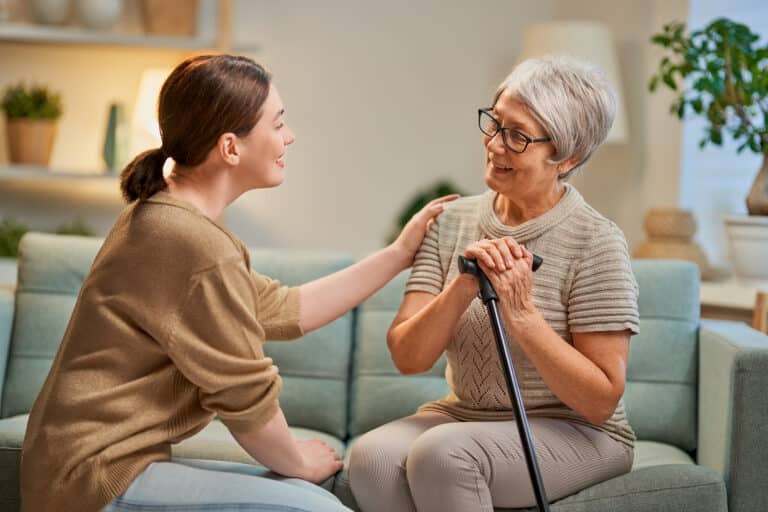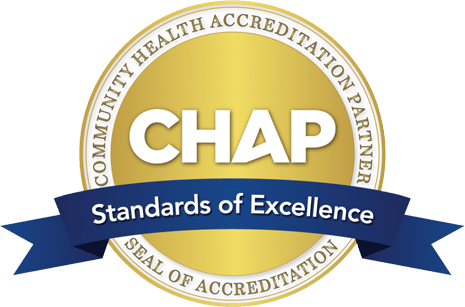As individuals age, it’s normal to update eyeglasses or contact prescriptions regularly. However, some experience more severe vision loss that goes beyond what a new pair of glasses can address. For elderly individuals or those in need of disabled adult care, vision loss can greatly impact their independence and overall quality of life.
Managing age-related vision loss can be challenging, but understanding its causes and exploring available support options can make a difference. Services like those offered by Family 1st Healthcare provide valuable resources and assistance for persons with disabilities, helping individuals and their families navigate these changes with greater confidence and care.
Signs of Vision Loss
The symptoms of vision loss will be determined by what is causing her vision loss and which areas of her vision are affected. Common vision loss symptoms include:
- Increased sensitivity to bright lights and glare.
- Less ability to see in low-light situations like driving at night or reading without a bright light.
- Seeing more floaters and flashes of light in her sight.
- Inability to see sharp edges or clear lines.
- Vision that is blurred or distorted.
- Loss of color perception.
- Pain, pressure, and redness in the eyes.
Three Types of Vision Loss in Seniors
There are three main areas where many seniors experience vision loss, which can significantly impact their daily lives and the need for disabled adult care. In some cases, multiple areas of vision may be affected, requiring specialized support to maintain independence and quality of life.
- Peripheral Vision: When this area of vision is affected, your senior may notice she struggles to see items in the outer areas of her sight line. This vision loss can lead to less spatial awareness of items.
- Central Vision: When vision is lost in the central line of sight, your loved one may become aware of not being able to see items directly in front of her clearly. It can range from not being able to read something in front of her to not recognizing the face of someone approaching.
- Night Vision: Night blindness occurs when your loved one can no longer see well in low-light conditions. She may not be able to read a menu in a darkened restaurant or drive at night.
Common Causes of Vision Loss in the Elderly
If your loved one is experiencing vision difficulties, it’s essential to help them schedule a visit with their optometrist. Vision problems can sometimes indicate more serious health issues beyond needing a prescription update.
For those providing disabled adult care, addressing vision health is crucial to overall well-being. Common conditions causing vision loss in older adults can also impact their independence and quality of life.
Common conditions that cause vision loss in the elderly include:
- Cataracts
- Glaucoma
- Age-related macular degeneration (AMD)
- Dry Eyes
- Retinal Detachment
- Diabetic Retinopathy
Receiving Disabled Adult Care for Permanent Vision Loss
If your elderly loved one’s vision loss is not reversible or repairable, he might qualify for disabled adult care to help him remain independent. With disabled adult care, he can still live independently in his own home safely.
A disabled adult care provider can help him with activities he can no longer do, like driving, by providing transportation as needed. If he struggles in the kitchen, a disabled adult care provider can help with meal prep so that he’ll continue having healthy and nutritious meals to enjoy.
The disabled adult care provider will work directly with your loved one to help him find solutions to obstacles that he is struggling with so he can continue to live an active and independent life.
If you or an aging loved one is considering Disabled Adult Care in Brandon, FL, please contact the caring staff at Family First Healthcare Services today at (813) 461-8000.
Family First Healthcare Services is a top provider of in-home health services in Tampa, Bradenton, Brandon, Riverview, Lakeland, Winter Haven, Haines City, Lakewood Ranch, Palmetto, Town ‘n’ Country, Florida, and surrounding areas.
- Fun Brain Games Seniors Can Do At Home - May 23, 2025
- Three Types of Vision Loss in Seniors - May 7, 2025
- Managing Osteoarthritis with Physical Therapy - April 28, 2025


